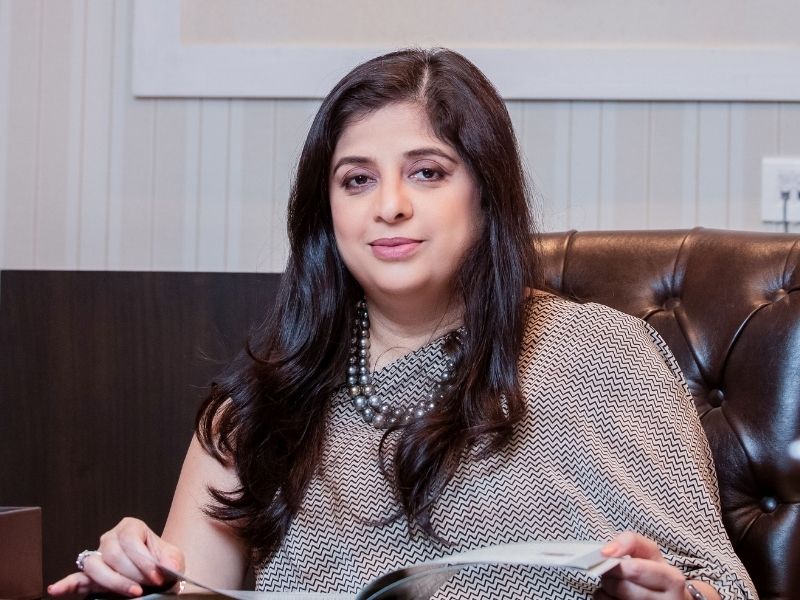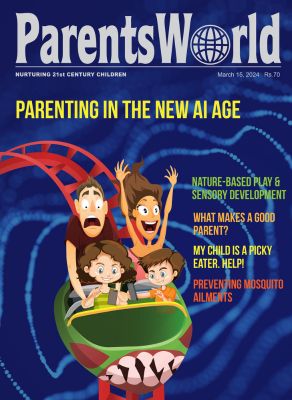 – Tulika Kedia, President- DPS Mihan and DPS Kamptee Road, Nagpur
– Tulika Kedia, President- DPS Mihan and DPS Kamptee Road, Nagpur
The outbreak of the pandemic last year reshuffled almost all nuances of our existence and in turn ushered in the era of what is now being called as the ‘New Normal’. In our country, a common impact felt across industries was that of an accelerated shift towards digitisation. Education, just like other established systems in India- health, manufacturing etc. was caught unaware of how long the pandemic would last.
Not just in India, across 186 countries, more than 1.2 billion children were affected by the lockdown and closure of schools (Source-World Economic Forum).
Okakura Kakuzō, the famous Japanese art scholar once said, “The art of life is a constant readjustment to our surroundings”. Education institutes rightfully chose to adopt online technologies at a supersonic speed- which indeed was the need of the hour. Even in the pre pandemic years, we’d been sounded off on the importance of adopting technology for imparting education ranging from language apps, virtual tutoring, video conferencing tools and online learning software. While we slowly yet steadily inch towards the pre-pandemic way of life, I believe the hybrid model involving online classes will become an integral component of school education, more so as we have begun to experience some of its advantages- the biggest being the ability to customise and engage with students in the current scenario.
To begin with, this model has empowered students to gradually lean towards learning in a self-paced, self-disciplined and self-directed manner- essential traits which would not only benefit them later on at both undergraduate and postgraduate levels but also empower them towards professional growth. Even though some schools have begun to call students onto their campus on a rotational basis, we’ve already observed children taking higher ownership when it comes to solo projects to create original work from home.
This new format of learning has also encouraged educators across all levels to step out of their comfort zones and focus on upskilling- which I believe has been a blessing in disguise. The new age applications and platforms are helping teachers channelise their energies towards demonstrative format of teaching-learning, which still allows them to address students’ individual needs and problems.
We foresee more and more schools investing in technology tools and getting accustomed to reaping the benefits of Artificial Intelligence- something which is a common phenomenon across countries like Singapore, HongKong, United States and others. By getting instant assistance with planning of class schedules, course crafting, student profiling, record-keeping and designing corrective measures for individual students- artificial intelligence gives much needed impetus to experiential learning- something which we have been focusing on at both, DPS Mihan and DPS Kamptee Road in Nagpur. The process of holistic evaluation of students and reporting has become more sophisticated.
No wonder, The Government of India is pushing for a dynamic New Education Policy 2020 which aims at universalization of education from preschool to secondary level.
“In the middle of every difficulty lies opportunity”- these famous words by Albert Einstein rightfully sums up our current situation. I’m a diehard optimistic and genuinely believe that the adoption of the hybrid model has made education more accessible to students across regions of our country. As we explore different facets of virtual education- an integral part of the hybrid model, our education system in the long run will be better prepared to train our future workforce- who would be far more adept in making the most from this format of learning. Additionally, the hybrid model of teaching will empower our teachers to teach and assess in a more creative manner.
We have entered a new era of disruption. The transformation of the education sector is an exciting opportunity. It’s time that more and more institutes leverage the advantage of hybrid learning models coupled with an intensive use of technology and focus on maximizing the value for the students throughout their learner journey. Only then will they be well positioned for success.
Also read:




























